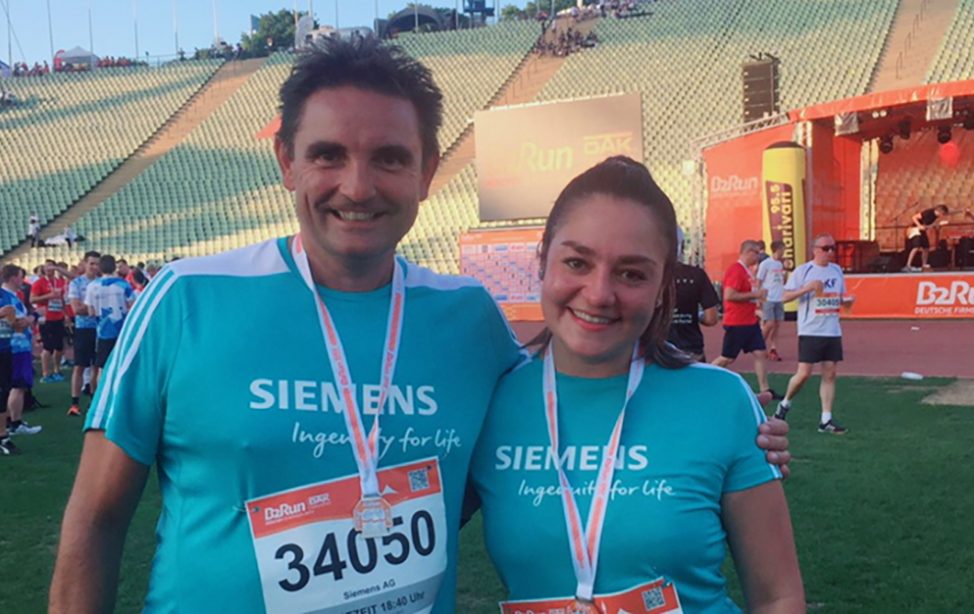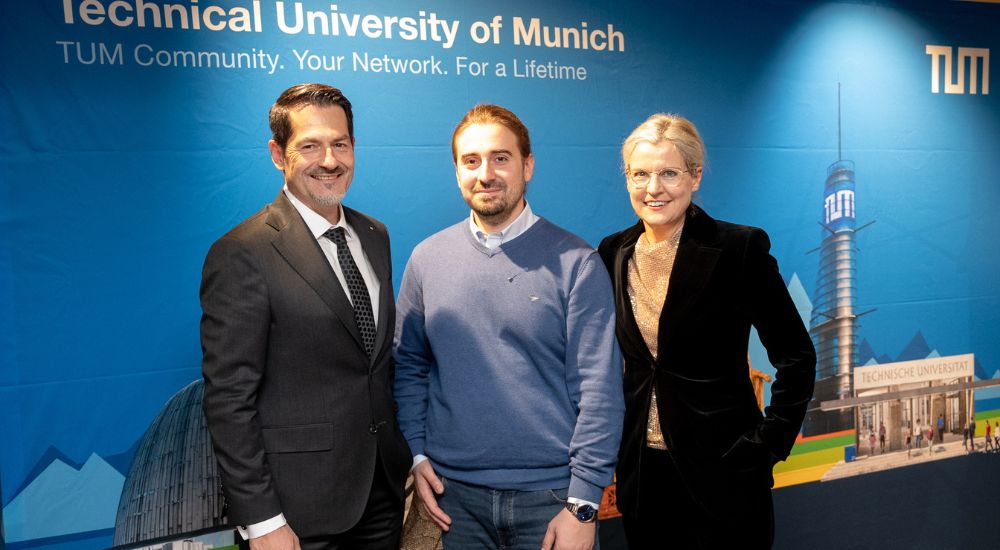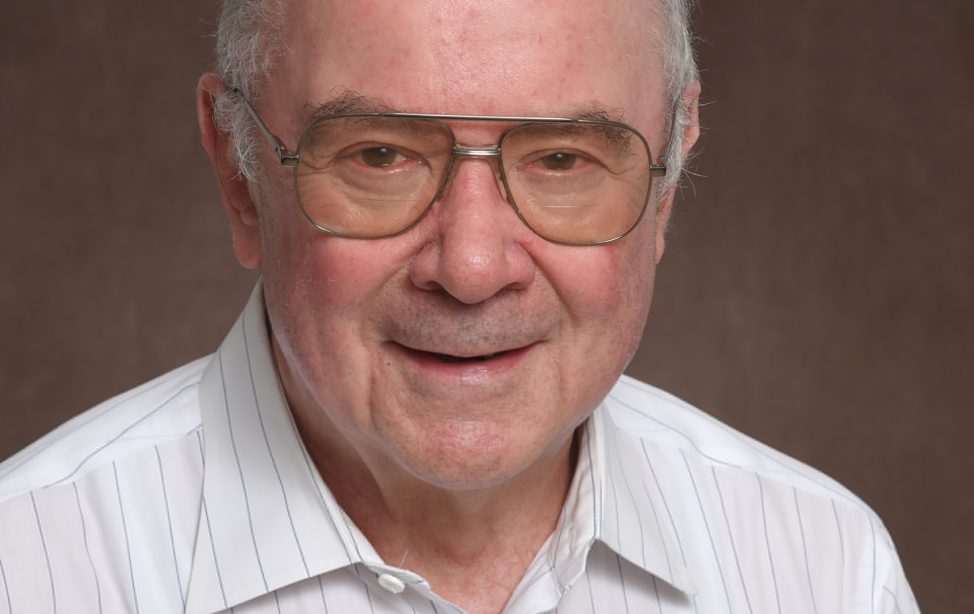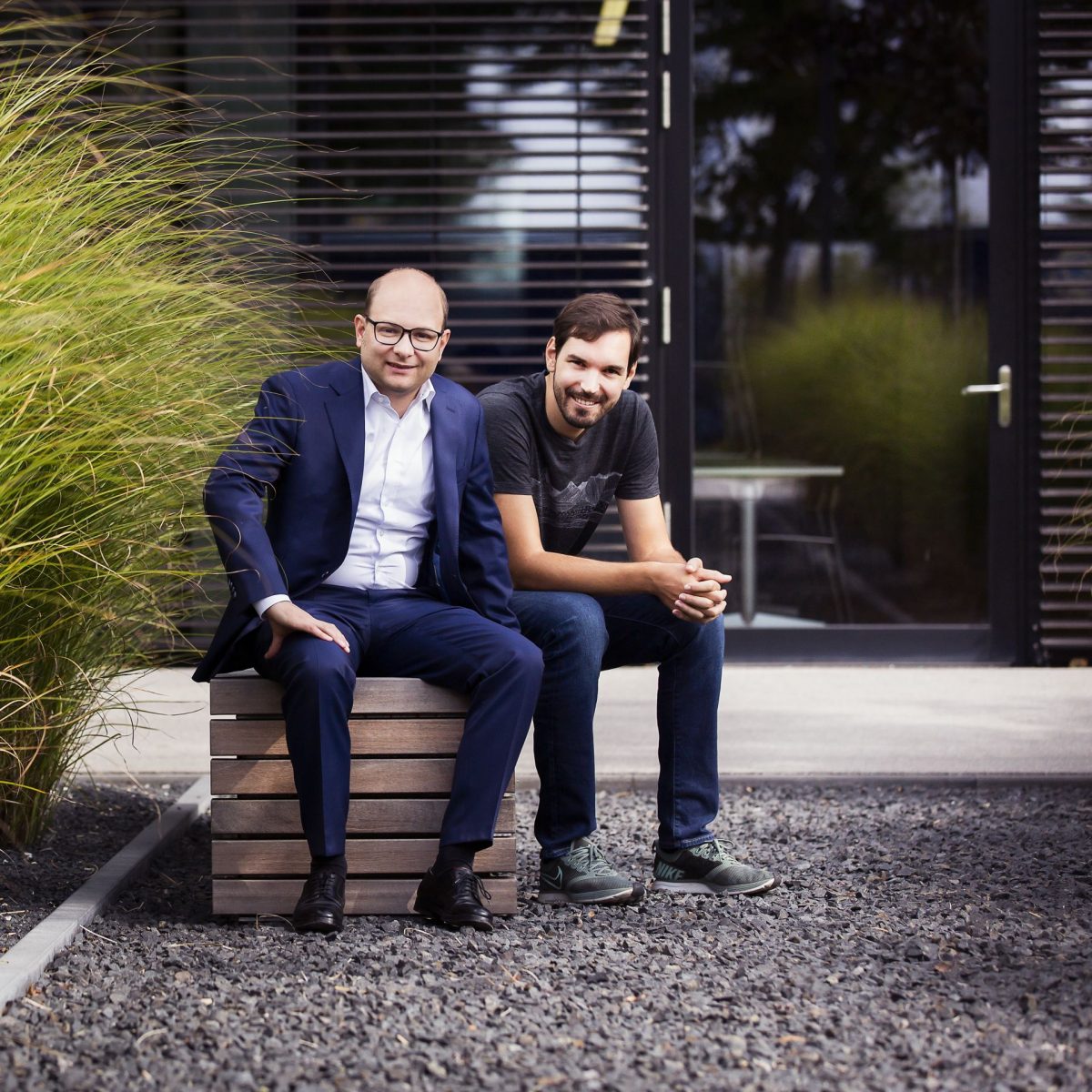
Bastian Nominacher (left) and Martin Klenk got a lot of support from TUM when they were setting up business (photo: Magdalena Jooß/TUM).
“The IT system automatically stored process data – an incredibly valuable feature that produced a constantly growing treasure trove,” says Bastian Nominacher. “It was clear to us that we had to analyze it, that there was an immense value behind it. Based on a publication by Dutch professor Wil van der Aalst, the three young men developed their own program. In 2011, shortly after completing their studies, the company was founded. “First the three of us worked in my apartment and, over time, we gained more and more customers,” says Nominacher. Large corporations such as Siemens were on board early on. “This allowed us to get by completely without external investment in the first five years – very unusual for a start-up,” says the TUM Alumnus.
A real unicorn from TUM
Today, the 33-year-old is co-CEO of one of the world’s most successful start-ups. Investors recently valued the TUM spin-off at one billion US dollars. Start-ups that achieve this enterprise value are referred to as “unicorns”. They are seen in Germany less frequently than in the USA or China: According to the “Handelsblatt”, only five start-ups have crossed the billion euro threshold in the past ten years.
As early as 2015, Celonis was the fastest growing technology company in Germany, and one year later the New York office was opened. One third of the DAX companies now use the technology. This makes Celonis the world market leader in so-called process mining. This enables companies to analyze all digital business processes and thus quickly recognize whether there are problems in the processes and, if yes, where these are to be found. “We are creating a completely new category of technology in this area,” says Bastian Nominacher. “This is what makes it all so incredibly exciting and exciting.
We have a bold vision, but we are 100% on board.
TUM talent pool
TUM played an important role in the company’s foundation. In addition to the TUM consuktancy service for company founders, the chairs of Business Informatics, Industrial Design and Entrepreneurship helped to develop the business model and a corporate identity. “Regardless of whether it is a question of software architecture or a complex financial model – we can always fall back on the knowledge provided by the university. This is incredibly important for us, since we didn’t have any business experience when we founded the company.”
The connection is still close today. More than a quarter of the 400 employees come from TUM: “The fact that we have our office in Munich on Theresienstraße is no coincidence,” says Bastian Nominacher. In fact, the proximity to the TUM is an important location factor. “We serve an almost infinitely large market, there is very strong demand and we need real talent at the highest level. Celonis receives more than 2,000 applications per quarter, but only a few are chosen. “We are very selective, but TUM offers us a very good local talent pool. If TUM didn’t exist here, we would probably have to move away because there simply wouldn’t be any employees there for us”
The future vision of growth
In addition to its headquarters in Munich and New York, Celonis has numerous other international offices. In the USA, the company has four locations and generates half of its turnover there. The leap across the Atlantic, which some considered risky, did not scare the founders. “We were certain that US companies would face the same business challenges in process optimization,” says Nominacher. In addition, Celonis had prepared well for the step by taking experienced investors as partners for the first time five years after the company was founded. Further growth is also forecast for the future. “I can well imagine that, in a few years, Celonis will be a company with several thousand employees,” says Bastian Nominacher. After all, the company is the absolute market leader in its field and currently has to cover demand from all over the world. The founders do not rule out going public, but they do say they won’t sell the company. ” We have a bold vision, but we are 100% on board,” Bastian Nominacher is convinced.
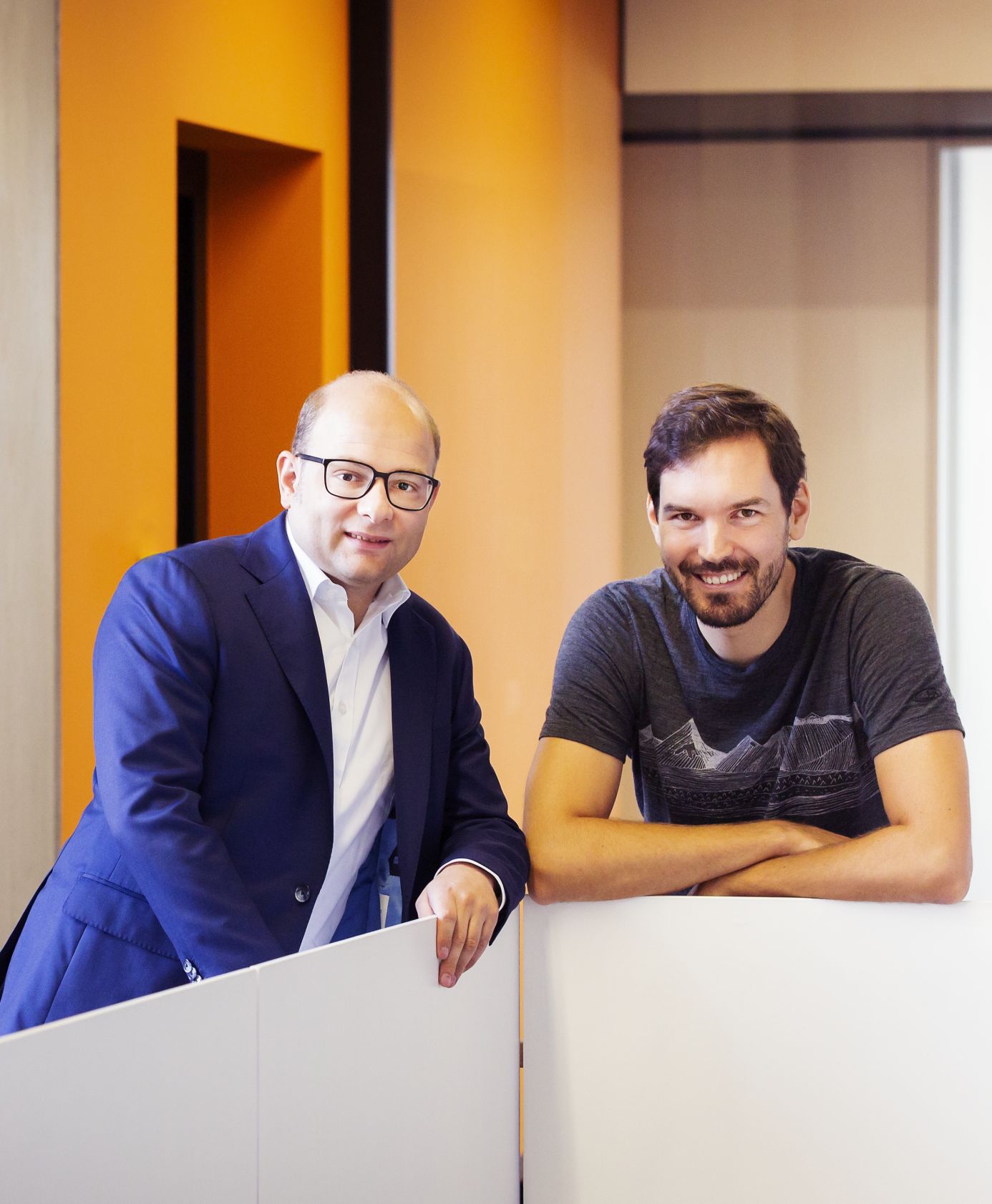
Bastian Nominacher and Martin Klenk (photo: Magdalena Jooß).
Master’s program in Finance and Information Management and Bachelor’s in Informatics 2010
Bastian Nominacher studied Finance and Information Management at TUM and graduated in 2011 with a Master’s degree. Martin Klenk graduated from TUM with a Bachelor’s degree in Informatics.
During their studies, the two young men met Alexander Rinke, who studied Mathematics at TUM. As part of the student consultancy service, Academy Consult, they successfully carried out various projects together. It was one of these that gave them the idea to found Celonis.
The start-up company offers process-mining software that enables companies to analyze all digital business processes. Global players and medium-sized companies in 20 different industries use the software, including one third of DAX companies. This makes Celonis the world market leader in this technology – a true hidden champion.
The founders were supported among other things by an EXIST founder scholarship, the TUM foundation consultation service and numerous chairs at TUM.
Today Bastian Nominacher is pleased to be able to pass on the experience and knowledge he gained during the foundation phase to students and Alumni of TUM. Together with some other entrepreneurs, he will be giving a panel discussion on the topic “Hidden Champions”, providing some insights into his daily work and talking about his formula for success.
Read an interview with Celonis on the website of TUM Department of Mathematics (in German language)>
